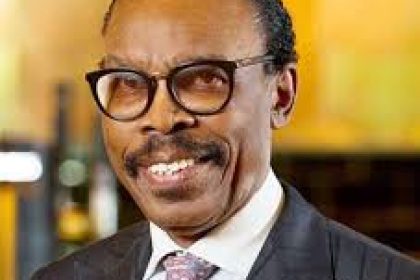
Following the #EndBadGovernance protests that erupted across the country in the first week of August, the federal administration is stepping up efforts to guarantee that policy reforms have a positive and significant impact on people’s well-being.
This comment was stated on Thursday by Mr. Bismarck Rewane, Chief Executive Officer of Financial Derivatives Company (FDC), during his monthly presentation at the LBS Breakfast Session titled “Cost of Living Protest: Was It Politically Motivated or Hunger Induced?”
Rewane listed the federal government’s stimulus package, minimum wage, stabilisation measures, and duty waivers on basics as short-term measures that could alleviate the country’s high cost of living.
He remarked that the impact of import tax waivers on vital goods would undoubtedly reduce prices and have a knock-on effect on production costs, adding that the Naira has stabilised in the FX market and is beginning to gain slightly.
Rewane stated, “The APC-led administration suffered a baptism of fire. The weakening economy, as predicted, is the party’s underbelly. The APC leadership has now come to terms with reality and is responding favourably.
“The genuine position is now becoming revealed. Economic data is being released more frequently and with greater integrity. Conciliatory moves are being made across the aisle.
He stated that the recent National Council of State meeting and the Patriot Group’s visit to President Bola Ahmed Tinubu demonstrated that the government was reaching out and deepening its engagements with key stakeholders.
He advised: “The good news is that damage control is beginning to work and there is a strong possibility of leadership changes at the management level.”
The economist defined the high cost of living as “a situation in which the cost of everyday necessities such as groceries and bills rises faster than average household incomes.”
He noted that Nigeria’s high cost of living has a multifaceted influence on Nigerian businesses, affecting cost structures, top and bottom-line growth, investment plans, workforce management, and operational margins.
He mentioned “high operating costs, reduced investment and innovation impacting business expansion, the decline in consumer spending due to low disposable income, lower demand fuelled by higher prices” as examples of how the high cost of living affects enterprises.
He attributed the current social crisis in Nigeria to economic hardship caused by multidimensional poverty, trust deficit, and credibility gap, adding that the government implemented “policy change without institutional reform” and curtailed the “profligacy and lavish living of government officials.”
The CEO of FDC encouraged the government to include institutional change, synchronisation of its economic development plan, and a reset button in its short-term solutions to reduce governance costs and ensure equal sacrifice and burden sharing among citizens.
He further explained that, “reliance on IMF policies has been associated with increased economic hardship for the lower-income segments of society.”
He linked Nigeria’s application of IMF policies back to the 1980s, when the country faced substantial economic issues, prompting the adoption of IMF-backed Structural Adjustment Programmes (SAP) aimed at currency depreciation, reduced government spending, and trade liberalisation.
“However, these policies were frequently greeted with public opposition because of their negative socioeconomic consequences, such as increasing poverty and unemployment.
The Fund recommended that Nigeria manage its debt by pursuing economic reforms as part of the aid agreements. However, reliance on IMF programs has been linked to increased economic hardship for lower-income parts of society.

